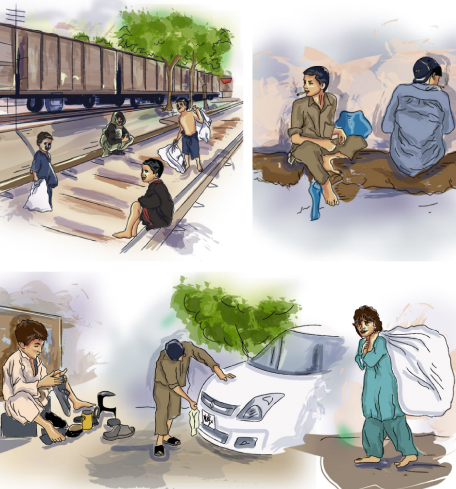
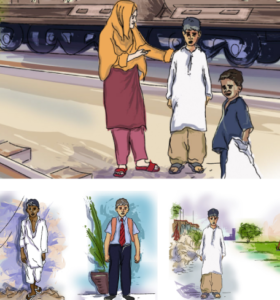

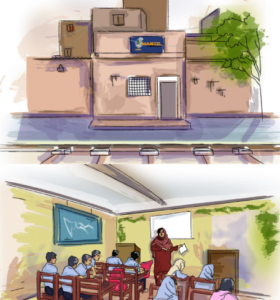
In 2002, Shazia Mirza, then a student, was shaken by the tragic news of a two-year-old boy’s death. The boy, Ramzan, was the son of her maid and had been fatally struck by a passing cargo train in the underserved area of Raiti Lines, located next to the upscale neighborhood of Bath Island. Compelled to visit the grieving family, Shazia was stunned to find children playing on the very train tracks where the accident had happened. When asked why they weren’t in school, the children cited the distance to the nearest government school and their fear of corporal punishment, a common practice in many educational institutions. Eager to persuade them to prioritize education over aimless activities, Shazia received an unexpected challenge from one of the students: “Since you’re so concerned, why don’t you teach us?” This pivotal moment would serve as a catalyst for Shazia, leading her to consider the profound impact she could have on these children’s lives.
Upon visiting Ramzan’s home, Shazia found herself encircled by a group of maids. One spoke up, saying, “My husband and I both work, and in our absence, our children end up playing on those dangerous cargo tracks. We have no one to keep them safe. Can you please teach them basic reading and writing? We don’t want them to suffer a fate like Ramzan’s.” At the time, Shazia received a monthly allowance of 2,000 rupees. Ramzan’s mother offered to rent a room for 1,800 rupees, providing a space where Shazia could start her teaching efforts. She agreed, launching her first informal reading and writing classroom. The initiative quickly gained traction, with an influx of children, both young and old, wanting to learn. Within just a few days, the number of students swelled to over 50. And thus began a transformative journey…
The tragic loss of Ramzan and the eye-opening conversation with children playing on dangerous cargo tracks became catalysts for change in Shazia Mirza’s life. Realizing the urgency and lack of educational opportunities in marginalized areas, she took it upon herself to provide a safe and educational space for children. She began by renting a room with her own pocket money to set up an informal reading and writing classroom. Within just a few days, the small space swelled with over 50 eager learners, young and old, showcasing the palpable need for education in the community.
Those early days were only the beginning of what would become a larger mission. Shazia’s small initiative evolved into Manzil, a flourishing educational organization that serves students from marginalized areas of Karachi. With a dedicated team and a unique Cognitive-Affective curriculum, Manzil goes beyond traditional pedagogical methods. The program emphasizes that emotional care and social aspects are integral to effective learning in the 21st century. Today, Team Manzil continues to expand its positive impact, guided by a strong ethos of holistic education and social responsibility.
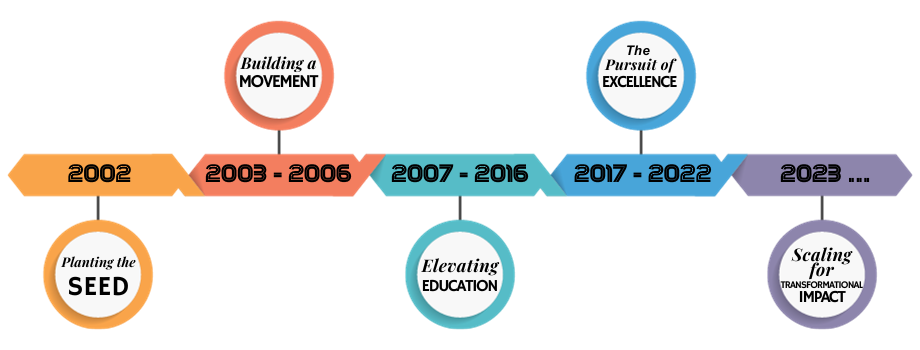
In a small room brimming with over 50 eager children, Shazia Mirza took the first step toward what would become a groundbreaking educational journey. Fueled by the sorrow of a tragic loss in her community and armed with just her pocket money, she embarked on a mission: to make education accessible for these underprivileged kids. This marked the inception of Manzil.
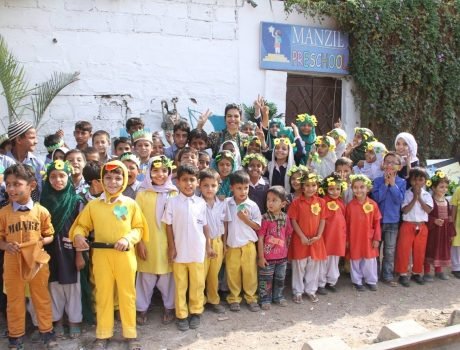
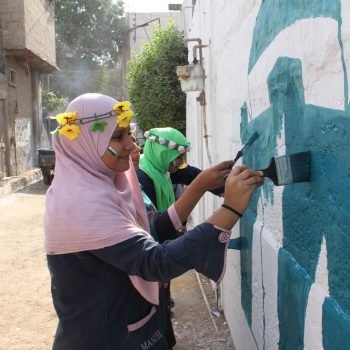
Shazia set out to defy traditional charity models. She didn’t want Manzil to rely on handouts; she wanted to tap into the untapped potential of Pakistan’s youth. Her forward-thinking vision resonated with students from prestigious institutions like IBA and Indus Valley. The result? A dedicated, skill-driven volunteer force that believed in creating a self-sufficient organization. As the team grew, so did Manzil’s impact, with a burgeoning student body and an ever-expanding list of volunteers.
Recognizing the unique needs of out-of-school children and elderly learners, Manzil launched its formal education wing in 2007, which included an early learning school. Yet the organization remained true to its roots, refraining from donation-driven operations. Instead, it fostered a financial ecosystem through community events and the generous backing of core team members, including friends and family. This decade culminated in a significant milestone—the graduation of Manzil’s first batch of secondary school students in 2016. This landmark achievement ushered Manzil into its next transformative phase: “Curriculum Revamp.”
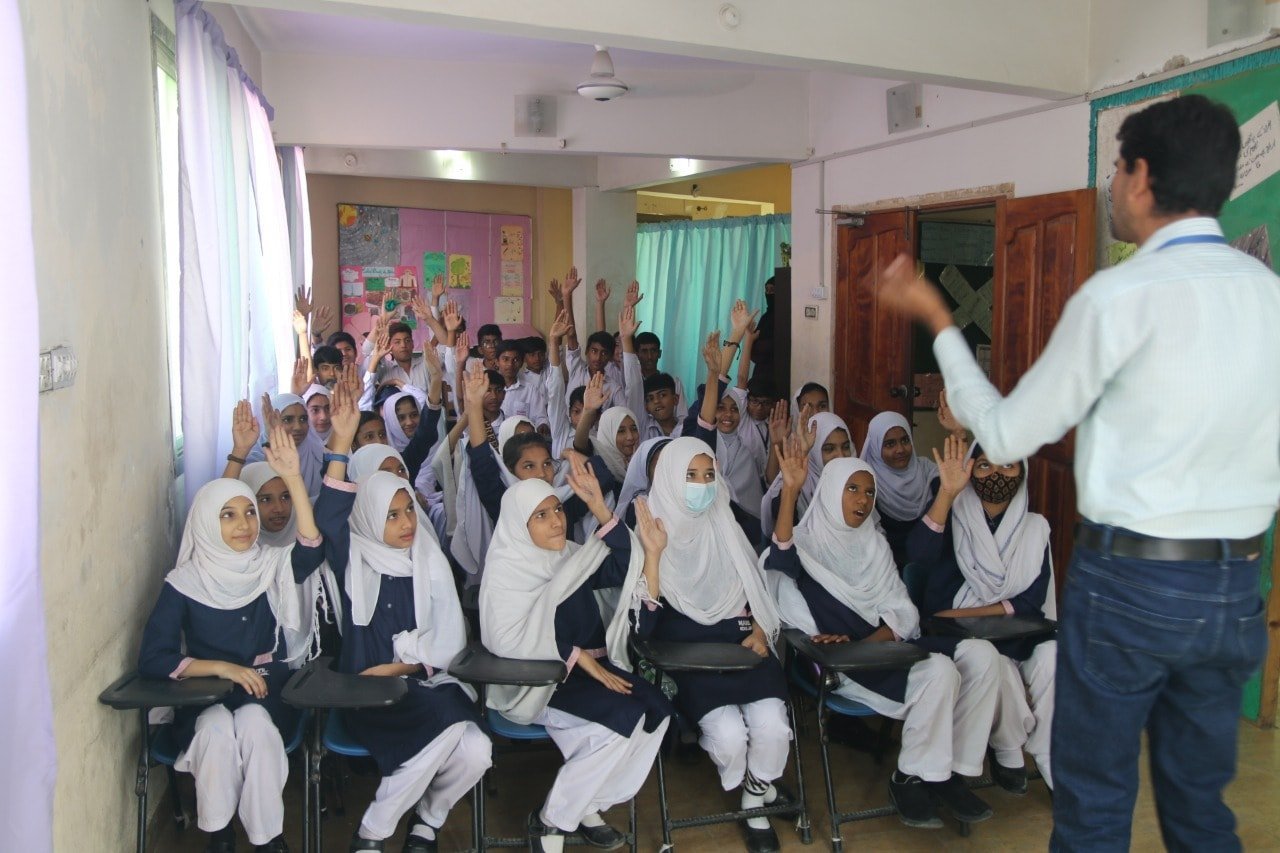
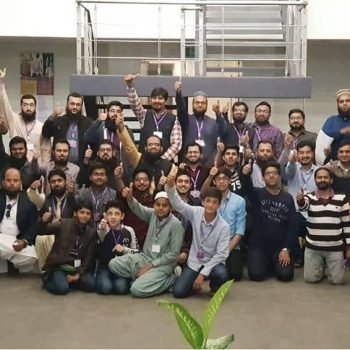
When Dr. Fatima Dar took the reins as President, Manzil entered a new era of educational innovation. Under her guidance, Manzil restructured its curriculum, adopting a revolutionary blended learning model infused with cognitive-affective learning approaches. Dubbed the “Care Curriculum,” this new framework promotes 21st-century skills like communication, socio-emotional competence, and ethical decision-making among students. Through a variety of techniques—including listening, counseling, bonding, and personality development—Manzil ensures that every interaction is underscored by empathy and care. Consequently, students not only excel academically but also learn to respect differing perspectives and emotions.
As Team Manzil gazes into the future, our sights are set on exponentially magnifying our impact. Originating in Karachi, we’re venturing into public school partnerships with the ambition to reform the educational landscape on a much grander scale. Our pilot project set the tone: In collaboration with the local Karachi government, Manzil has adopted two of 47 public schools as the cornerstone of our expansion initiative. But we’re not stopping there. Our vision extends far into the future, aiming to not just improve but transform the existing public school system.
In parallel, we’re taking our successful non-formal education model to new heights. This program has already demonstrated its efficacy in providing foundational literacy skills. We intend to replicate this cost-effective approach in more regions, focusing on reaching vulnerable, out-of-school children. By offering these children a ‘manzil,’ or destination, we’re building bridges to a more equitable and educated future. Our unique blend of formal and non-formal education approaches positions us uniquely to make this dream a reality.
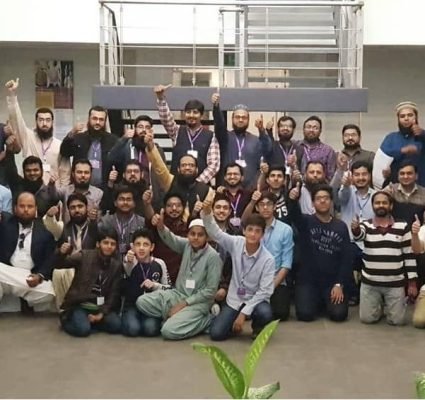
This reimagined timeline brings to life the extraordinary journey of Manzil—from a single room with 50 students to a robust educational entity, shaping the lives of hundreds. Each phase tells a story of ambition, resilience, and transformation, setting the stage for the organization’s inspiring future.